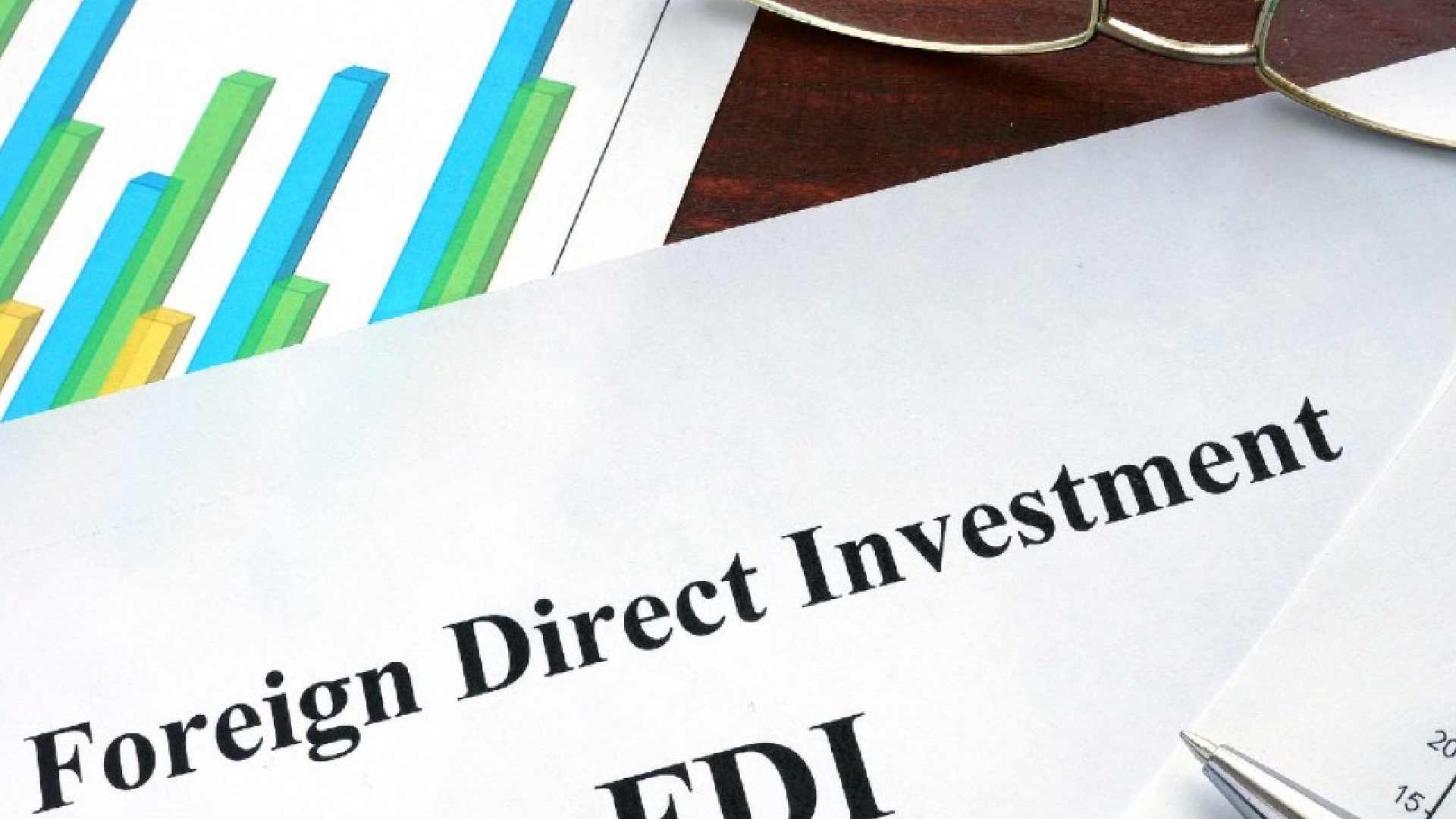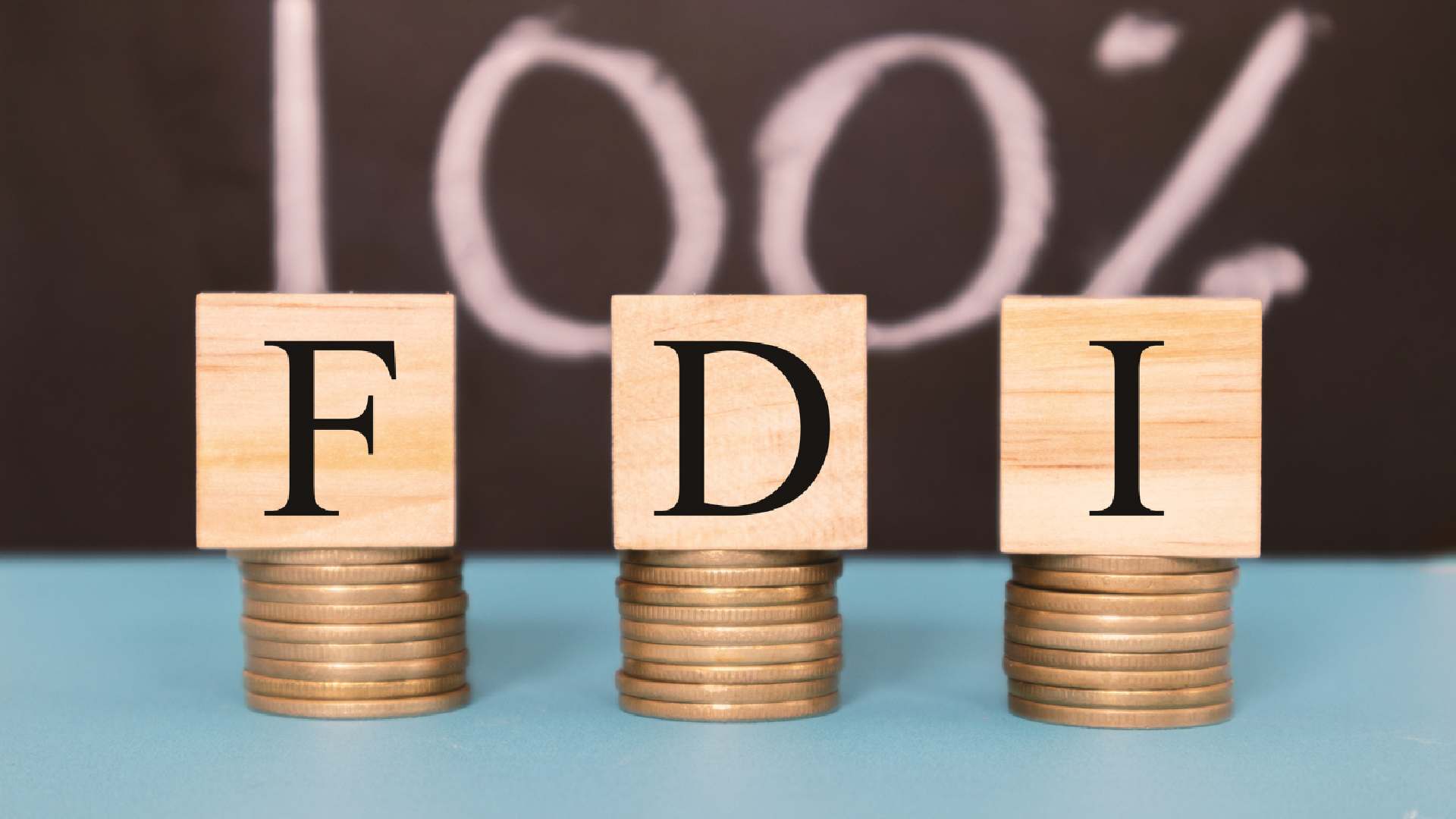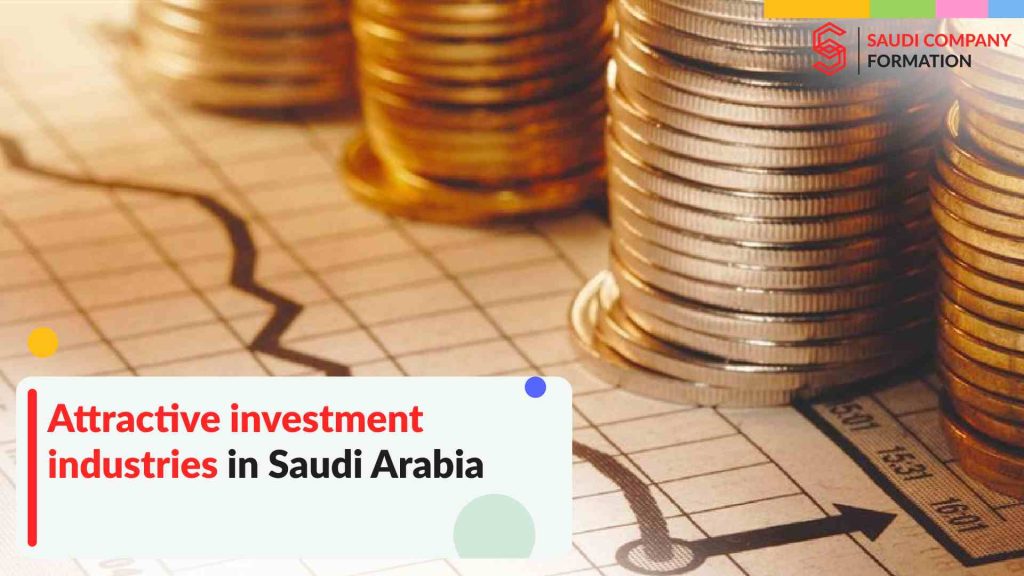Foreign Direct Interest in Saudi Arabia stands firm on a critical footing in molding the country’s monetary scene. As a strong driver of monetary development, FDI works with capital stream, innovation move, and occupation creation. We can credit Saudi Arabia’s charm to foreign financial backers to a mix of monetary changes, market open doors, and key area.
In this article, we will dive into the meaning of the FDI Saudi. Likewise, we will investigate the variables that make the country an alluring objective for financial backers and the difficulties it presents. These elements by and large establish a positive speculation environment, drawing both local and worldwide financial backers looking to take advantage of the country’s tremendous buyer market.
Factors Attracting Foreign Direct Investment in Saudi Arabia
In the consistently developing scene of worldwide financial matters, foreign direct interest in Saudi Arabia remains as a reference point of chance. As a central part in the Center East, Saudi Arabia has decisively situated itself as an appealing objective for foreign financial backers looking for development and extension.
FDI Saudi has become the dominant focal point because of Saudi Arabia’s strong financial changes and moderate approaches. The public authority’s “Vision 2030” plan frames an extensive guide for broadening, meaning to decrease dependence on oil incomes. This purposeful shift has re-imagined the venture environment, adjusting it to worldwide principles and encouraging a supportive of business climate.
Market open doors and an essential area drive FDI in Saudi Arabia. With a populace surpassing 34 million, including a developing working class, Saudi Arabia offers a broad shopper base. This, joined with its special geographic area at the junction of Asia, Europe, and Africa, makes it a local exchange and venture center.
Nonetheless, regardless of the appeal of foreign direct interest in Saudi Arabia, it isn’t without its difficulties. Financial backers frequently experience regulatory obstacles, a complex general set of laws, and social contrasts. Also, changes in oil costs can influence the country’s monetary solidness, influencing speculations.
In any case, foreign financial backers can explore these difficulties by shaping neighborhood organizations and acquiring top to bottom information on the administrative system. This proactive methodology improves their capacity to succeed and flourish in Saudi Arabia’s business scene. Besides, risk the executives systems are vital to defend speculations and guarantee long haul benefit.
In Saudi Arabia, there are countless factors that attract foreign direct investment. For instance, the principal and most important ones are:
Economic Reforms and Policy Initiatives
Foreign direct interest in Saudi Arabia has flooded lately, ascribed to the country’s striking monetary changes and moderate approach drives. Saudi Arabia, perceiving the need of expanding its economy, set out on an aggressive excursion under the “Vision 2030” plan. This vision fills in as the foundation for the nation’s change, effectively controlling it away from weighty dependence on oil incomes.
FDI Saudi has fundamentally profited from these visionary strategies, as the public authority finds a way conscious ways to establish a better venture environment. Key measures incorporate the privatization of state-possessed endeavors, which opens entryways for foreign financial backers to partake in different areas effectively. These drives adjust the country to worldwide norms as well as advance straightforwardness and proficiency, hence working on the simplicity of carrying on with work.
Accordingly, FDI in Saudi Arabia has seen significant development. The changed guidelines have smoothed out the method involved with beginning and working organizations. Moreover, the public authority has laid out unique financial zones, which proposition charge impetuses and different advantages to draw in foreign financial backers.
Saudi Arabia is likewise enthused about working with innovation move, a fundamental part of foreign direct speculation FDI in Saudi Arabia. By empowering joint endeavors, associations, and information trade, the country intends to foster its human resources and advance development. These proactive advances guarantee that foreign financial backers bring something beyond capital; they bring skill and innovation that benefit the country generally speaking.
Without a doubt, monetary changes and strategy drives are urgent in drawing in and holding foreign direct interest in Saudi Arabia. These systems establish an inviting speculation environment and work with the country’s monetary enhancement and development.
Market Opportunities and Strategic Location
In the realm of foreign direct investment in Saudi Arabia, one cannot overlook the compelling market opportunities and the nation’s strategic location. These factors function as powerful magnets for FDI Saudi, shaping the investment landscape in a unique way.
Saudi Arabia brags a populace more than 34 million, including a quickly developing working class. This segment offers a significant and steadily extending customer base, which is profoundly alluring to foreign financial backers. The potential for development and productivity is clear, making FDI in Saudi Arabia a convincing suggestion.
Besides, the country’s geographic area is a remarkable change in the realm of foreign direct venture FDI in Saudi Arabia. Situated at the junction of Asia, Europe, and Africa, Saudi Arabia partakes in an upper hand as a key exchanging center point. This area gives simple admittance to assorted markets and clients, lessening transportation expenses and time, which is especially important in the present globalized business climate.
What’s more, the public authority’s obligation to upgrading foundation, for example, transportation organizations, ports, and coordinated operations offices, further intensifies Saudi Arabia’s enticement for foreign financial backers. The productive development of labor and products empowers organizations to work without a hitch and access showcases rapidly and cost-successfully.
Saudi Arabia’s vision for what’s to come incorporates the improvement of an information based economy, which lines up with the targets of foreign direct interest in Saudi Arabia. With the expansion of businesses and an emphasis on innovation and development, the country offers a worthwhile market as well as the potential for innovation move and coordinated effort. Surely, the mix of broad market open doors and a vital geographic area makes FDI Saudi an engaging possibility.
Challenges and Risks of Foreign Direct Investment in Saudi Arabia
Without a doubt, foreign direct interest in Saudi Arabia has filled essentially lately, determined by the Realm’s dynamic approaches and key vision. As the nation expands its economy and makes its ways for worldwide financial backers, it is critical to perceive the multi-layered difficulties and potential dangers related with FDI in Saudi Arabia.
One primary challenge facing foreign investors is the intricate web of bureaucratic procedures. Navigating through government regulations and paperwork can be a daunting task for those foreign with the Saudi system. Nevertheless, a proactive and informed approach can efficiently address these hurdles.
Cultural differences are another significant hurdle. FDI Saudi often involves collaboration with local partners. Varying business practices and cultural norms can influence the dynamics between international investors and Saudi counterparts. Establishing mutual understanding is vital to fostering productive partnerships.
Furthermore, geopolitical factors can introduce an element of uncertainty. International developments and oil prices can influence the stability of the region. Fluctuations in oil prices have a direct impact on the Saudi economy and, consequently, on investments.
Legal complexities also present challenges. The Saudi legal framework may appear intricate, but with the right guidance and a thorough understanding of local laws, foreign investors can effectively navigate these complexities.
It is fundamental for foreign direct interests in Saudi Arabia to be good to go for these possible difficulties. By the by, understanding these difficulties and having techniques set up for their relief can prompt effective and productive FDI in Saudi Arabia. In the resulting segments, we will investigate procedures to address these difficulties and deal with the dangers really.
Obstacles and Potential Risks
With regards to foreign direct interest in Saudi Arabia, financial backers should be conscious of the complex difficulties they could experience. These obstructions can go from administrative obstacles to international intricacies that can impact the speculation environment.
One unmistakable test is the multifaceted and, on occasion, extensive regulatory cycles for laying out and dealing with a business in the Realm. The FDI Saudi scene frequently expects financial backers to explore a labyrinth of desk work and guidelines.
In addition, the general set of laws, while advancing, can in any case be perplexing. Financial backers ought to completely grasp the legitimate structure to guarantee their ventures line up with nearby regulations and customs, keeping away from potential debates that could prevent their tasks.
Social contrasts, as well, can represent a test. Understanding neighborhood customs and practices is pivotal in building connections and guaranteeing the outcome of foreign direct interest in Saudi Arabia. Compelling correspondence is crucial to lay out trust.
Furthermore, the reliance on oil incomes makes the economy delicate to worldwide oil cost changes. As oil costs can essentially influence the country’s financial steadiness, this represents a gamble for foreign financial backers, making their ventures powerless against market instability.
Political factors also need consideration. Geopolitical tensions in the region can affect the stability of the investment environment. Investors should stay informed about such developments and have contingency plans in place.
To mitigate these challenges, foreign investors should consider forming local partnerships and engage with experts who possess a deep understanding of the Saudi market. Establishing a network and seeking guidance can help navigate the intricate landscape of FDI in Saudi Arabia.
Strategies for Mitigation and Problem Solving
Navigating the intricate landscape of foreign direct investment in Saudi Arabia requires a well-thought-out approach that includes several key strategies.
Firstly, forming local partnerships can be a meaningful change. Collaborating with established Saudi businesses can provide invaluable insights into the local market, help build connections, and simplify regulatory processes. Such partnerships also foster trust and credibility among local stakeholders.
In-depth knowledge of the regulatory framework is essential. Investors should engage experienced legal counsel well-versed in FDI Saudi. They can provide guidance on compliance, navigate the legal intricacies, and ensure the investment aligns with local laws and customs.
Understanding and respecting local customs and practices is paramount. Effective cross-cultural communication can make a substantial difference in building strong relationships and trust, which are fundamental to success in foreign direct investment in Saudi Arabia.
Furthermore, risk management strategies should be at the core of an investor’s plan. Diversifying investments across various sectors and regions can help mitigate the impact of fluctuations in oil prices and other market uncertainties. This approach spreads risk and enhances overall stability.
Having contingency plans in place is also wise. Staying informed about geopolitical developments in the region is essential. Investors should be prepared to adapt and make quick decisions to protect their investments should unforeseen challenges arise.
Lastly, patience and a long-term perspective are key to success in FDI in Saudi Arabia. It may take time to navigate the complexities and establish a foothold in the market. Commitment to the Saudi market and its people can yield substantial rewards overall.
In conclusion, by adopting these strategies, foreign investors can mitigate challenges and problem-solve effectively. This ensures the success of their foreign direct investment in Saudi Arabia. Building strong relationships, understanding the local context, and managing risks are vital steps toward a prosperous investment journey.
Conclusion
In outline, we can’t exaggerate the significance of foreign direct interest in Saudi Arabia. It fills in as a main impetus behind the country’s monetary change and development. The public authority’s forward-looking “Vision 2030” system includes a few changes and drives. To be sure, it has laid out an engaging climate for Foreign Direct Venture (FDI) in Saudi Arabia.
One of the key factors that allure foreign direct interest in Saudi Arabia is the country’s essential area. Its geological closeness to Europe, Asia, and Africa positions it as a worldwide exchanging center. This upper hand makes it a tempting possibility for worldwide financial backers looking to take advantage of different business sectors.
In any case, recognizing the difficulties and potential dangers that accompany foreign direct interest in Saudi Arabia is fundamental. These incorporate regulatory intricacies, social contrasts, and the country’s reliance on oil. While these snags might appear to be overwhelming, there are systems and answers for explore them really.
Foreign financial backers can embrace a proactive methodology by laying out neighborhood organizations, acquiring top to bottom information on the administrative scene, and executing hearty gamble the executives systems. Thusly, they can moderate the likely difficulties and guarantee the progress of their speculations.
All in all, foreign direct interest in Saudi Arabia is a dynamic and groundbreaking power in the country’s monetary scene. The blend of visionary government approaches, key area, and a thriving customer base makes it an optimal objective for FDI. While challenges exist, educated and key speculations can yield significant awards in this quickly developing and promising business sector.
Might you want to find out about Foreign Direct Interest in Saudi Arabia? Then, visit our insights section.





